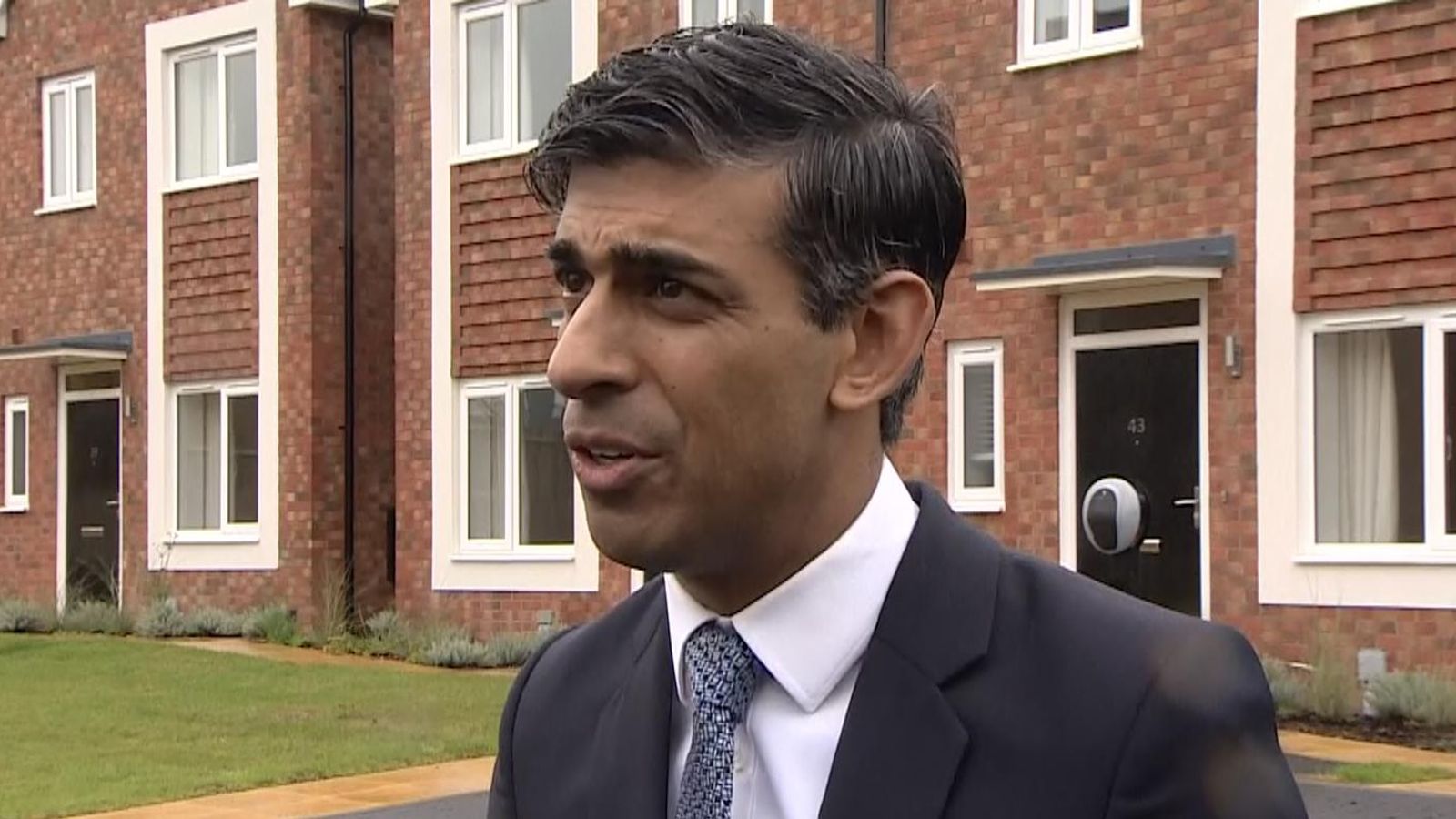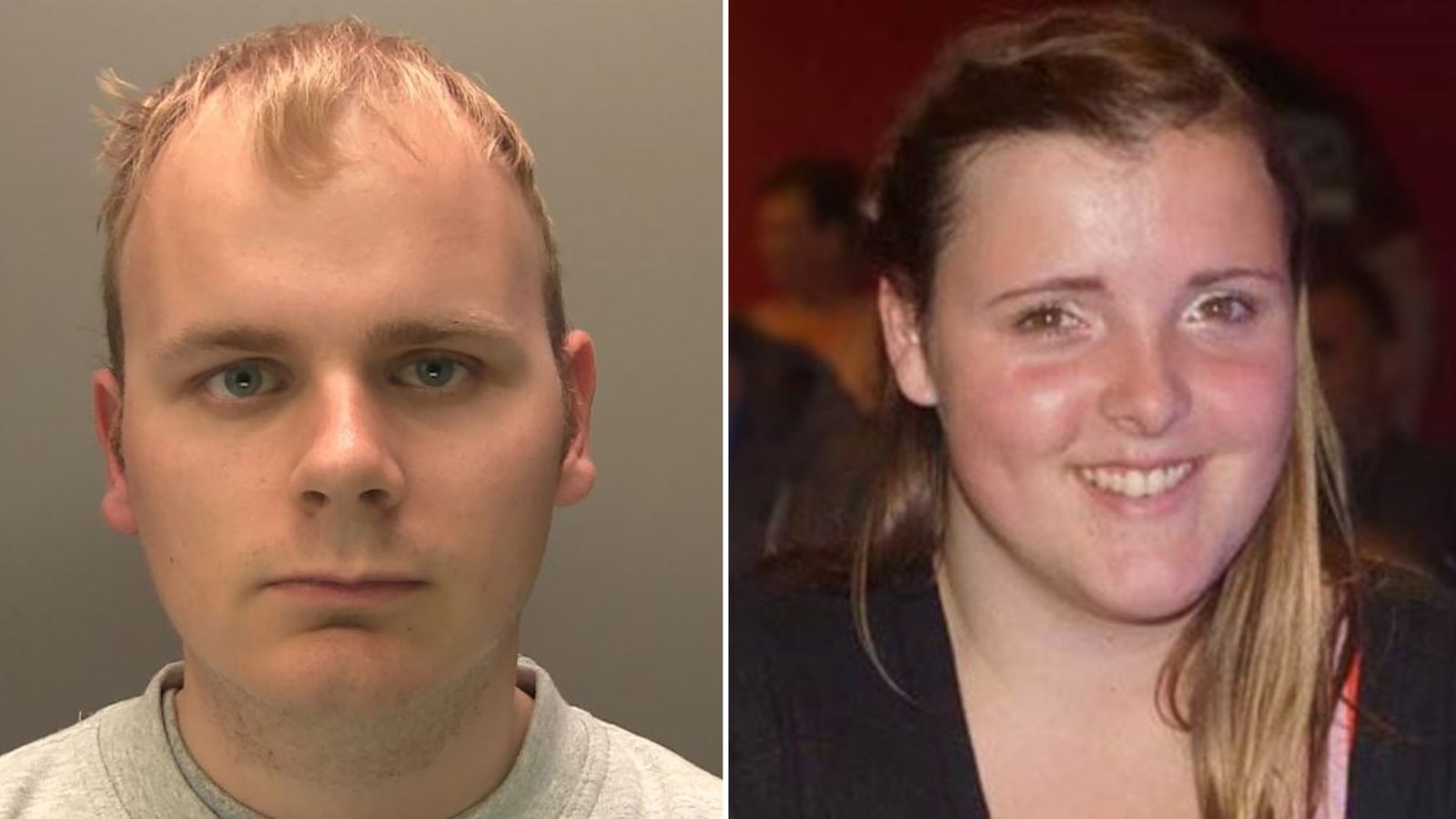Rishi Sunak has hinted he is prepared to water down climate policies which add extra costs and “hassle” to households.
The prime minister said he is is still committed to reaching net zero by 2050, but any new measures would have to be “proportionate and pragmatic”.
It comes as some Tory MPs are calling for a re-think of the party’s green agenda after they unexpectedly held onto Uxbridge and South Ruislip in a crunch by-election last week
Politics latest: UK cities need more people in them, says minister
The Conservatives’ opposition to the expansion of Sadiq Khan’s ultra-low emission zone (ULEZ), where polluting vehicles face a daily charge, was credited with their narrow victory in Boris Johnson’s old seat.
The result has reignited a debate on the cost and speed of policies to reduce carbon emissions.
Some Tories believe creating a dividing line with Labour on the issue will give them a fighting chance at the next general election, which they are currently projected to lose.
Michael Gove calls for relaxation of net zero measures and warns against treating environment as ‘religious crusade’
E-fuel – The climate friendly future of power?
Climate change: Icelandic company turning CO2 to stone in bid to combat greenhouse emissions
Asked today if he will stand up to his own MPs who think the net zero agenda has gone too far, Mr Sunak said: “Actually I’m standing up for the British people because I’m also cognisant that we’re living through a time at the moment where inflation is high.”
“So, yes, we’re going to make progress towards net zero, but we’re going to do that in a proportionate and pragmatic way that doesn’t unnecessarily give people more hassle and more costs in their lives – that’s not what I’m interested in and prepared to do.”
Downing Street later confirmed that ministers are scrutinising existing net zero pledges “in light of some of the cost-of-living challenges”.
On the target for banning new fossil fuel car sales by 2030, Mr Sunak’s official spokesman said it “remains our commitment”, but added: “It is right that, if the situation changes and new technology evolves, we keep our approach under review and make sure that it is the right one.”
On the promise to phase out gas boilers from 2035, he also said the commitment remains but “how technology evolves” is being considered ahead of the deadline.
And asked about Housing Secretary Michael Gove’s suggestion that a deadline to improve the energy efficiency of private rented homes could be relaxed, Mr Sunak’s spokesman said “wider developments in energy efficiency and the private rental sector” have to be considered.
“That’s to ensure that the cost and circumstances relating to energy efficiency improvement are fair and proportionate to landlords and tenants,” he added.
Click to subscribe to ClimateCast wherever you get your podcasts
Mr Sunak and Labour leader Sir Keir Starmer both face a challenge on green policies ahead of the next election – as they look to prioritise the economy while holding firm on climate pledges.
The government has set a legally binding target for the UK to be net zero by 2050.
Achieving this would mean that the UK’s carbon emissions were equal to or less than emissions that the country removed from the environment, and is considered vital to slow the rise in global temperatures caused by climate change.
But some Tory MPs are critical of levies designed to encourage a switch to a greener lifestyle.
Backbench pressure
On Sunday, former Conservative minister Sir Jacob Rees-Mogg said scrapping “unpopular, expensive” policies would be a “real opportunity” to help his party stay in power.
Danny Kruger, the co-leader of the New Conservatives group of right-wing MPs, also called for a “rethink about the pace and the mechanism of the change we all want to see”.
However, Mr Sunak has also faced accusations from some quarters of the Tory party of apathy on the climate crisis, with former minister Lord Zac Goldsmith recently resigning and accusing the PM of being “uninterested” in the environment.
Read more:
Government progress on net zero ‘worryingly slow’, report says
Please use Chrome browser for a more accessible video player
A similar divide is brewing in the Labour ranks after their failure to win Uxbridge.
Mr Khan stood by his policy of expanding the £12.50 daily charge for vehicles that fall short of emissions standards to the capital’s suburbs, after senior Labour figures urged him to “reflect” on the policy designed to cut air pollution.
Today, shadow housing secretary Lisa Nandy said last week’s by-election sent a “clear message”, adding: “We’re absolutely committed to cleaning up our air. We’ve got to make sure we do this in a way that is helpful and affordable for people.”
The debate comes as wildfires surge in Greece amid temperatures of 46C in Europe – with climate charities urging all political parties not to back down on their promises.
Friends of the Earth said ministers should provide financial support to individuals so they can make greener switches, arguing that people on lower incomes are most affected by climate breakdown.
Science head at the climate group Mike Childs said: “Treating climate action as a political fault line is inexcusable, but even more so when deadly heatwaves and wildfires are tearing across Europe, America, and Asia.”




